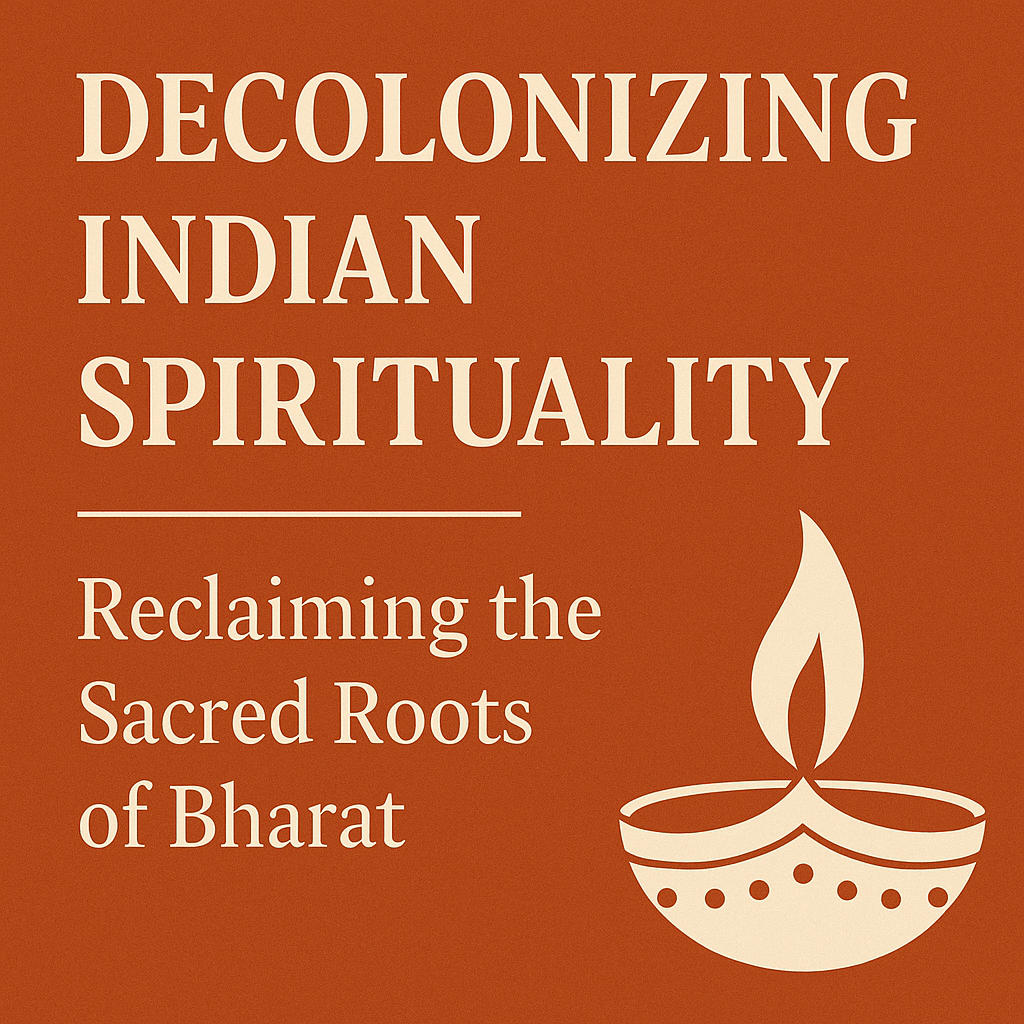
In the long shadow cast by colonial dominion, the subtle conquest was not merely of territory or wealth, but of the Indian mind. Among the most insidious consequences of foreign rule was the systematic dilution, misrepresentation, and marginalization of India’s spiritual heritage. The time has come, not with fanfare, but with reflective intensity, to engage in the urgent task of decolonizing Indian spirituality.
To decolonize is not to dismiss what the West has to offer. Rather, it is to strip away the veil of imposed interpretations. It is to see with one’s own eyes, instead of viewing through lenses handed down by alien authorities. Spiritual India was never simply a land of ritual or renunciation. It was a civilization that envisioned the cosmos as a rhythmic expression of the Divine, and the self not as a sinner doomed to guilt, but as a soul capable of rising to unity with the Infinite.
It is regrettable that the British and their successors often viewed Indian spirituality as escapist, irrational, or regressive. The Upanishads, those luminous dialogues between seer and seeker, were reduced to quaint curiosities. The Gita, a call to selfless action, was interpreted as fatalism. The yogic disciplines, profound and experiential, were caricatured as bodily contortions or mystic fancies. The flaw did not lie in the texts, but in the eyes that beheld them.
India’s sages never sought to impose belief. They aimed to awaken inquiry. The Rishis taught not what to think, but how to think. They asked not for blind obedience, but for inner realization. The sanatana dharma they upheld was not a rigid creed. It was a path of harmonizing the individual self, the jivatman, with the universal spirit, the paramatman. In this noble enterprise, metaphysics and ethics, knowledge and devotion, contemplation and action, all found their rightful place.
Yet colonial education separated these once-unified domains. Religion was torn from reason. The spiritual was isolated from the social. India, we were told, was great in the past but degenerate in the present. Its spirituality was seen as noble but impractical. This dichotomy bred a deep inferiority complex, in which many Indians began to see their own traditions as burdens rather than treasures.
To decolonize Indian spirituality is to restore to it its dignity and wholeness. This is not an act of nostalgia. It is a responsibility. It involves a reinterpretation of our texts in light of their original context and purpose. We must once again listen to the quiet wisdom of the Upanishads, the moral clarity of the Gita, the meditative insights of Patanjali, and the compassionate universalism of the Buddha.
This is not a rejection of modernity. Rather, it is an effort to build a modernity rooted in our spiritual soil. As I have often said, there is no contradiction between scientific temper and spiritual aspiration. One deals with the outer world. The other attends to the inner. A civilization that ignores either is doomed to imbalance.
Let us then strive for a new renaissance. Not merely of art or language, but of the soul. Let our universities study Indian philosophy not as a relic, but as a living tradition. Let our children read the Vedas not in hushed fear, but with open curiosity. Let our seekers know that meditation is not escape. It is engagement with the real. Let our temples, mosques, churches, and gurudwaras echo not with rivalry, but with reverence for the Divine in all.
In reclaiming our spiritual autonomy, we do not set ourselves against the world. Rather, we take our rightful place within it as inheritors of a tradition that dares to believe the self can be transformed, that society can be ennobled, and that truth, ultimately, is one, though sages call it by many names.
Such is the spirit of India. Timeless, and ever-renewing. Let us walk forward, not as blind imitators, nor as boastful revivalists, but as pilgrims returning to the source, carrying with us the lamp of discernment, the courage of introspection, and the quiet joy of self-discovery.





















